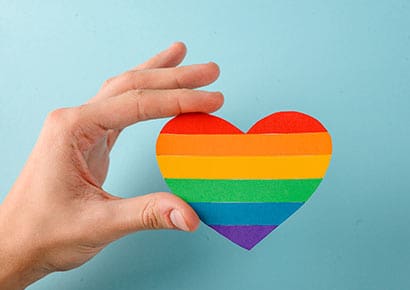This is why coming out can reduce homophobia
 Coming out and LGBTQ visibility can have a big impact. Researchers have confirmed that simply knowing one openly gay or lesbian person increases people’s level of acceptance.
Coming out and LGBTQ visibility can have a big impact. Researchers have confirmed that simply knowing one openly gay or lesbian person increases people’s level of acceptance.
This according to a study conducted by Daniel DellaPosta, Penn State University assistant professor of sociology and an affiliate of the Institute for CyberScience.
He found that people who met and became acquainted with at least one gay person were more likely to later change their minds about same-sex marriage and become more accepting of gay and lesbian people in general.
The study affirms the so-called “contact effect” which suggests that even casual friendships and relationships can change people’s attitudes about issues. DellaPosta sought to confirm this in his research.
He looked at data from the 2006, 2008 and 2010 editions of the General Social Survey (GSS), which reflects the social opinions of the US public. In showed that in 2006, about 45 percent of the people who had a gay or lesbian acquaintance expressed support for same-sex marriage.
By 2010, that figure had increased to 61 percent. In 2006, only 22 percent of people who did not have a gay or lesbian acquaintance said they approved of same-sex marriage. That number fell to 18 percent in 2010.
“The findings could shed light on how ‘coming out’ among gay and lesbian people impacts the general acceptance of gay and lesbian people,” wrote Matt Swayne for Penn State News. He noted that in the 1973 GSS, just 11 percent of Americans felt “homosexuality is not wrong at all.” By 2016, that number had grown to 52 percent.
“If you have very superficial contact, like just seeing someone from an ‘outgroup’ in the grocery store or on the subway, you may focus more on selective behaviors that reinforce your prejudices — like someone dressing, talking or acting in a way that reinforces some negative stereotype of that group,” said DellaPosta.
“But, if you take the next level to mere acquaintanceship — someone whose name you know, someone who, if you saw them on the street, you might stop and chat with them for a moment — the contact effect sets in because when you suddenly have to interact with someone from an outgroup as an individual, it forces you to reconsider your biases.”
According to DellaPosta, having a closer, deeper bond with a gay or lesbian acquaintance did not result in an even larger shift of attitude toward same-sex marriage. He explained that the contact effect actually is larger for people who have a low probability of having a gay or lesbian acquaintance.
The study was published in the journal Socius.
Leave a Reply